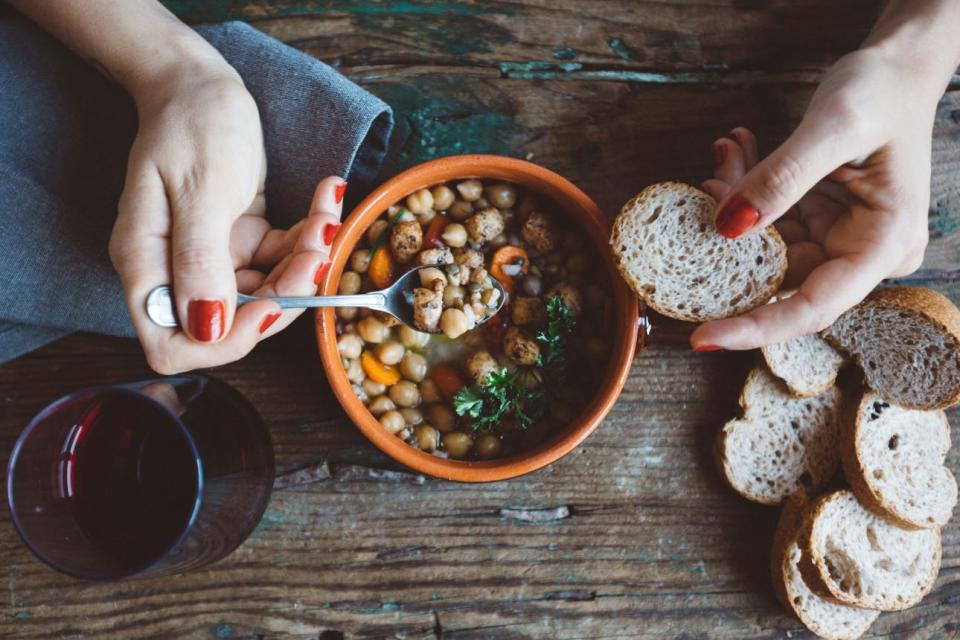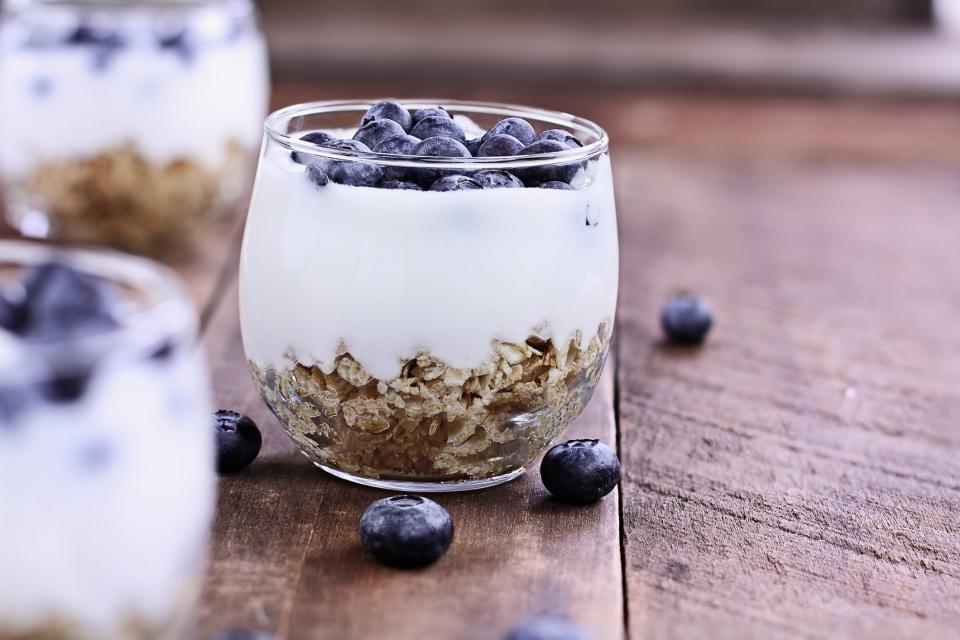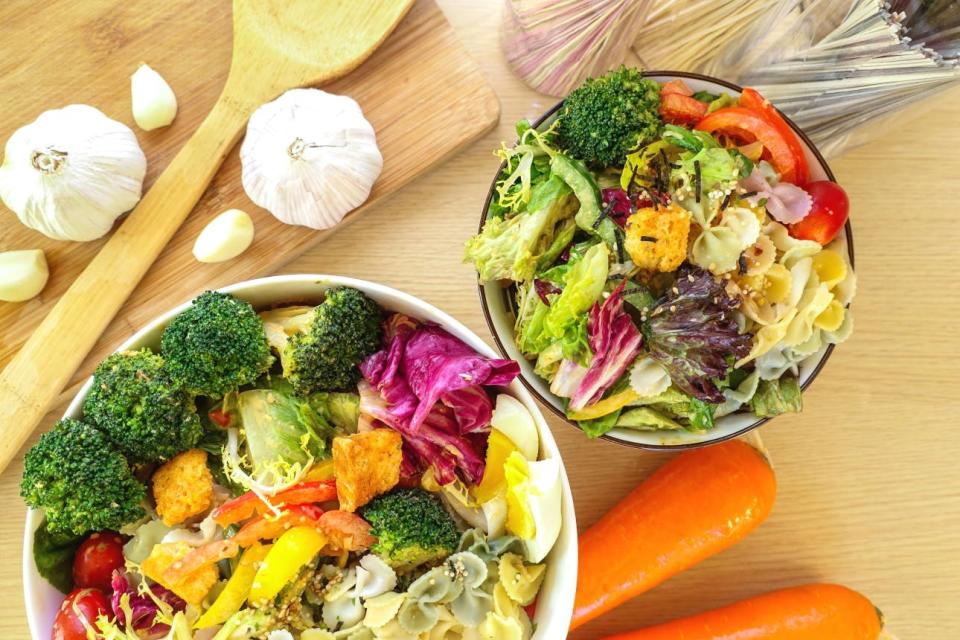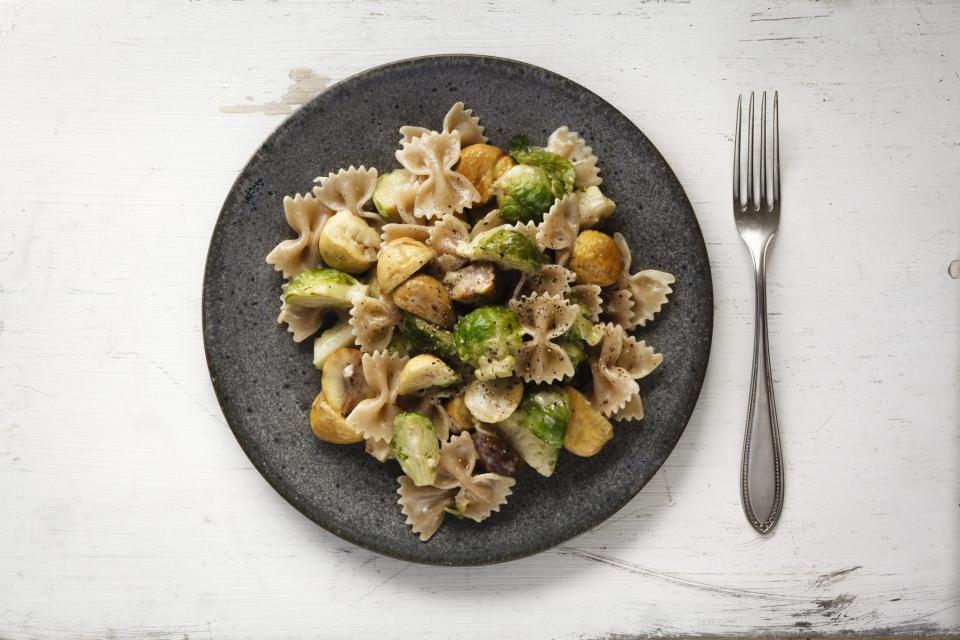What to Eat at Every Stage of Your Period
Growing up, learning about your period probably went something like this: “You get PMS, you get your period, and you go back to normal until next month.” Even the way we talk about our periods — “that time of the month,” “riding the crimson wave,” “Aunt Flow is in town” — makes it sound like a period is a week-long engagement, when really your body is in a never-ending cycle, which has four stages. You’ve probably heard of menstruation (days 1-5, when you’re bleeding). After that, there’s the follicular stage (days 6-12, when your hormones rise), followed by ovulation (days 13-18, when it’s easier to get pregnant), and finally the luteal stage (days 19-28, which you might experience as PMS). This cycle repeats itself until you go through menopause. From stage to stage, your energy levels and what your body needs can vastly differ: Some days you feel like you literally can’t even, and others you feel invincible.
To break down just what’s happening to your body and what it needs during each phase, we spoke with nutritionist Lola Ross, co-founder of hormone- and cycle-tracking app Moody Month, who has used food, supplements, and lifestyle changes to positively affect her clients’ hormonal cycles.
MenstruaL

The first day of your cycle is the first day of menstruation, also known as your bleed phase. As your cycle starts, explains Ross, “lower hormone levels can make you feel fatigued and zapped of energy, coupled with possible heavy bleeding and cramps.” She suggests feeding your body with lots of filtered water and unprocessed, nutrient-rich, warm and comforting foods to “keep energy and blood sugar levels steady.”
Consuming a good mix of lean proteins, healthy fats, and low glycemic index complex carbohydrates like root vegetables, whole grains, and legume-packed stews “can support the energy-intensive process of menstruation.” Ross advises eating cooked, fermented, sprouted or activated foods which are easier to digest, as well as iron-rich foods, “which help to replenish iron levels that can be lost during our bleed.” She says you can get that iron from plant-based sources like lentils, kelp, pumpkin seeds, dried prunes, and spinach. Or, if you eat animal products, she proposes eggs, fish, and grass-fed beef.
As for supplements and herbs, Ross recommends a magnesium oil spray for cramps and migraines and methylated B vitamins to help with breast tenderness, clotting cramps, and migraines. If you have a whole range of PMS symptoms, you might want to try the herbal supplement agnus-castus.
Follicular

During the follicular phase, you might feel more energized and able to do more exercise. As your egg follicles mature for the next stage of ovulation, your hormone levels begin to rise — especially progesterone and estrogen. “Estrogen is responsible for increasing our metabolic rate, plumping skin, and sharpening cognitive function. Some [people] find that they have more energy, focus, and willpower at this time, so it may also be an optimal time to begin your healthy eating plan or give that seven-day cleanse a go,” Ross recommends. As for progesterone, it “balances estrogen, supports healthy sleep, and helps to regulate mood. With both hormones at a high during this time, it can often give rise to feelings of optimism, energy, and motivation and can be a great time to take on new challenges or complete tricky tasks.”
Because of this new energy, Ross advises adding light, fresh, and vibrant foods like salads into your diet. This is also a good time to up your intake on fermented products like kefir, probiotic yogurt, or sauerkraut, since fermented foods “support gut health and detoxification.”
If you want to try some supplements or herbs during this phase, Ross recommends probiotics to help with your digestion, detoxification, immunity, and mood. To support your sexual vitality, you may want to try Shatavari root. And if your increased energy levels are making you feel restless, Ross suggests L-theanine and lemon balm.
Ovulatory

This stage is thought of as a shifting phase, as your egg has matured and your hormone levels (especially estrogen) are rising to help with the ovulation process. Your body temperature also increases, and you could feel more energetic. According to Ross, while a lot of people say these are the days they feel like their best selves, some deal with increased anxiety and insomnia. “During this shifting phase, listening to your body is key,” she encourages.
Since your estrogen levels are high, you might experience side effects like breast tenderness, “so add fiber and light foods to your diet,” recommends Ross, as well as “nutrients that support the liver to remove estrogen, [which are] found in foods such as kale, broccoli, onions, garlic, and radishes.”
If you need more energy, mood, and hormone regulation, Ross suggests vitamin B6. If you’re struggling with insomnia during this phase, Ross says a valerian/fennel tea blend will encourage a deeper sleep.
Luteal

As hormone levels drop, this is the time most people experience PMS. “It is possible to help manage pre-period moods and discomforts through food choices,” Ross assures. “If you are prone to cravings, they may be at their highest during the week before your period,” Ross tells us, “and carbohydrates may be what you are craving. However, just ensure they are complex ones such as brown rice, pasta, or bread. (The husks are filled with energy and stress-supporting B vitamins and fiber to help curb cravings and balance those moods.).” She also advises avoiding salty foods (even if you’re craving them), as they contribute to water retention that will just increase swollen breasts and bloating.
You also want to try to cut out caffeine and alcohol around this time. “Stimulants can aggravate PMS and trigger anxiety and mood shifts. Coffee and alcohol can also interfere with the absorption of essential vitamins and minerals required for optimal menstrual health.” Ross endorses alternatives like sparkling fruit water, herbal teas, and chicory root. If you really can’t do without your morning latte, at least try swapping the espresso to decaf.
RELATED: 6 New Products That Will Help Make Your Periods Less Painful
(Photos via Getty)


